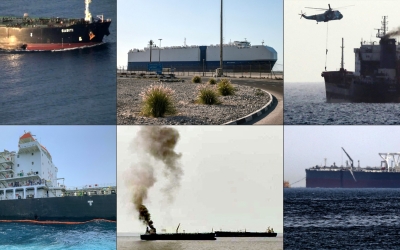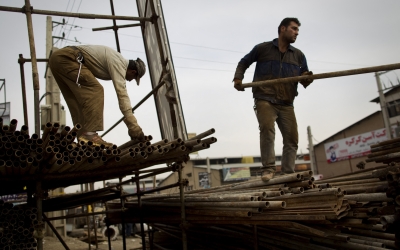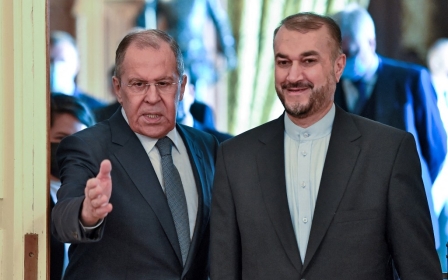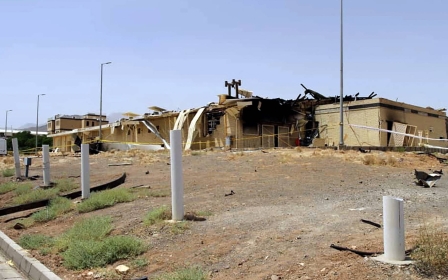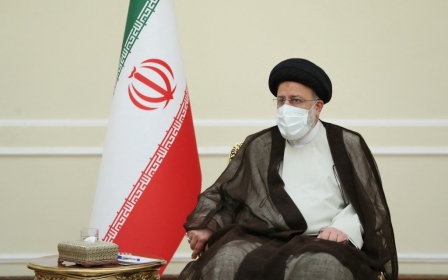Israel accuses Iran of sending explosives to Palestinians using drones
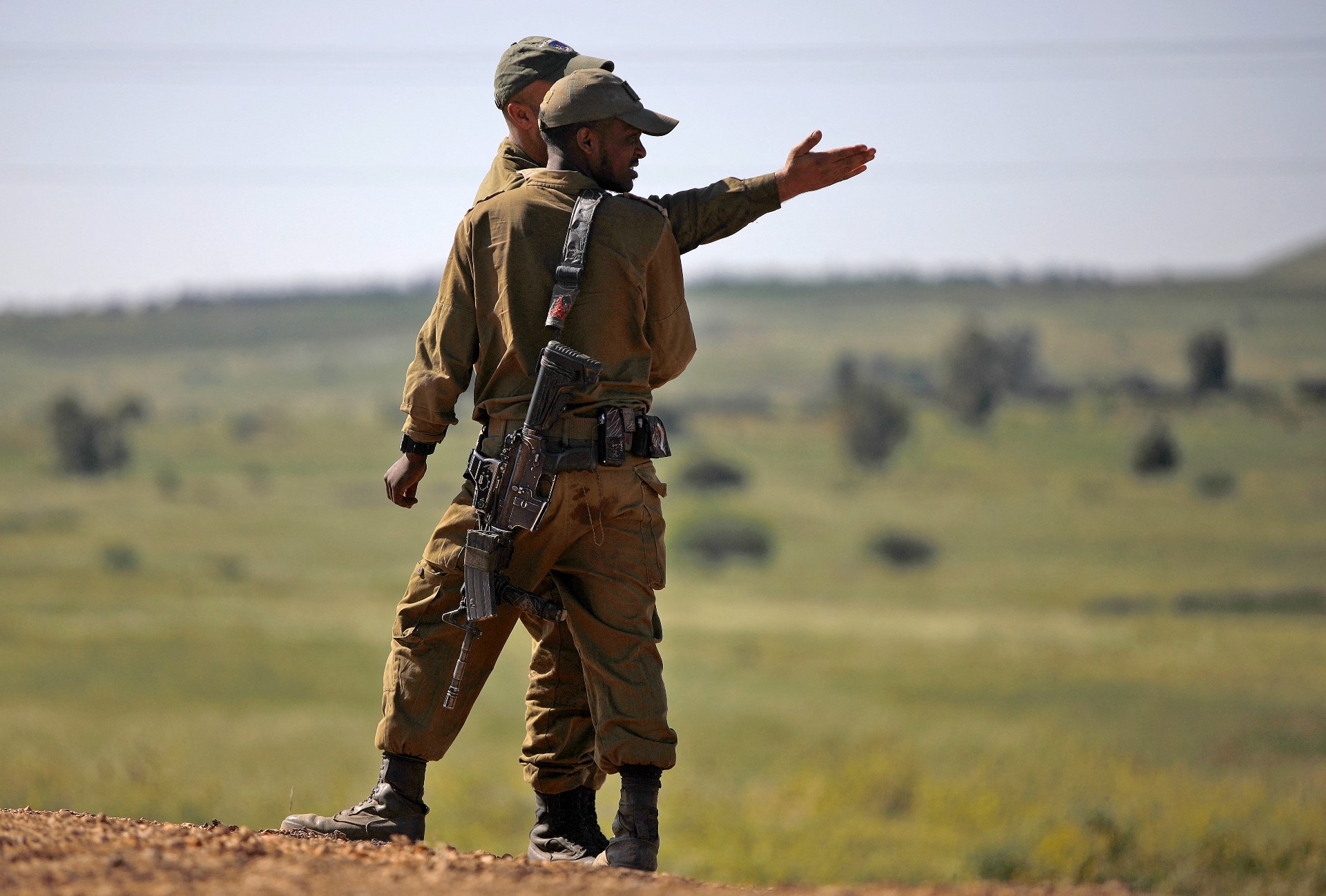
Israel has accused Iran of attempting to send explosives to Palestinian militants in the occupied West Bank via drone flights.
During a security conference in Herzliya on Tuesday, Israeli Defence Minister Benny Gantz said Israel shot down an Iranian-developed Shahed 141 drone over Beit Shan, a town close to Israel's borders with Jordan and Syria.
Gantz said the drone was loaded with explosives and was flown in February 2018 from the T-4 airbase near Syria's Homs.
New MEE newsletter: Jerusalem Dispatch
Sign up to get the latest insights and analysis on Israel-Palestine, alongside Turkey Unpacked and other MEE newsletters
Its destination, Gantz claimed, was Palestinian militants in the West Bank. "Iran doesn't just use [drones] to attack, but also to transfer weaponry to its proxies," he said.
Gantz also accused Iran of launching naval and drone attacks on maritime targets from bases in the island of Qeshm and Chabahar, a port on the Iranian coast on the Gulf of Oman.
He claimed the bases are used to store and deploy combat drones.
"[The drone] is a highly accurate weapon that can reach strategic targets that are thousands of kilometres away... [It] endangers Sunni states and international forces in the Middle East, as well as European and African countries," Gantz said.
The minister alleged that Iran's influence is stretching from Venezuela to Afghanistan. "The method is clear: first we take Damascus, then we take Berlin," he said.
Mistake won't be repeated
Also speaking against Iran at the conference was Naftali Bennett, Israel's prime minister. In an attack on the leadership of his predecessor Benjamin Netanyahu, Bennett claimed his country "fell asleep" after the 2015 nuclear deal with Iran.
Donald Trump unilaterally took the US out of the nuclear deal in 2018, but today the Biden administration is seeking ways to return to and strengthen the pact.
Bennettt promised that Israel won't repeat its "mistake," and "won't be bound" by any future agreement with Iran to cap its nuclear technologies.
'We face complicated times. It is possible that there will be disagreements with the best of our friends... This wouldn't be the first time'
- Naftali Bennett
"We face complicated times. It is possible that there will be disagreements with the best of our friends... This wouldn't be the first time," Bennett said, predicting clashes with western allies over the nuclear talks.
US-Iranian negotiations are set to resume on 29 November in Vienna, and Bennett said regardless of their outcome Israel will be free to act against Iran if it wishes.
"In any event, even if there is a return to a deal, Israel is of course not a party to the deal and Israel is not obligated by the deal," he said.
'Our American friends'
Gantz's tone was more diplomatic. The former army chief of staff said Israel will keep working with the US and European countries on the issue of Iran's nuclear capabilities.
"There is no doubt that a diplomatic solution is best, but at the same time, there has to be a show of force on the table as well, which means continuing diplomacy through other means," Gantz said.
"Sometimes using and displaying force can prevent the need for using stronger force. I thank our American friends for the sanctions and actions they have taken recently on this matter, in order to achieve a mutual goal."
Avigdor Lieberman, the Israeli minister of communication, also warned on Tuesday that Iran could have a nuclear weapon within five years.
Multiple suspected Israeli attacks on Iranian nuclear sites have been reported in recent months. But the New York Times on Monday reported that US officials have warned their Israeli counterparts that repeated attacks on Iranian nuclear facilities are counterproductive and might cause Tehran to speed up its nuclear programme.
Rafael Grossi, head of the International Atomic Energy Agency (IAEA), has been in Tehran this week ahead of the Vienna talks. On Tuesday he said: "The agency is seeking to continue and deepen the dialogue with the government of Iran... We agreed to continue our joint work on transparency and this will continue."
Mohammad Eslami, Iran's nuclear chief, said: "Tehran is determined to resolve technical issues with the agency without politicising the matter."
Middle East Eye delivers independent and unrivalled coverage and analysis of the Middle East, North Africa and beyond. To learn more about republishing this content and the associated fees, please fill out this form. More about MEE can be found here.


